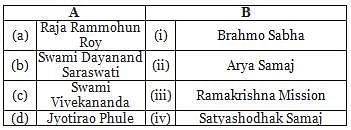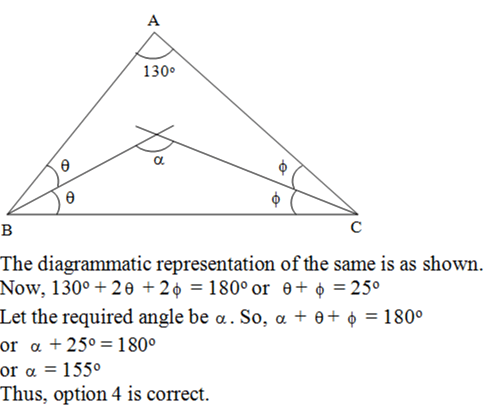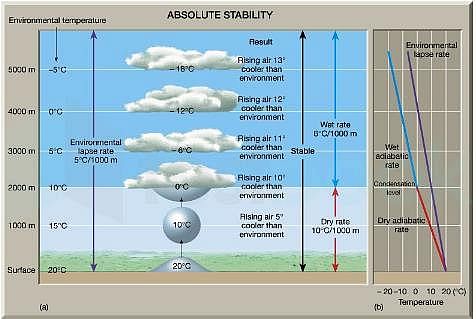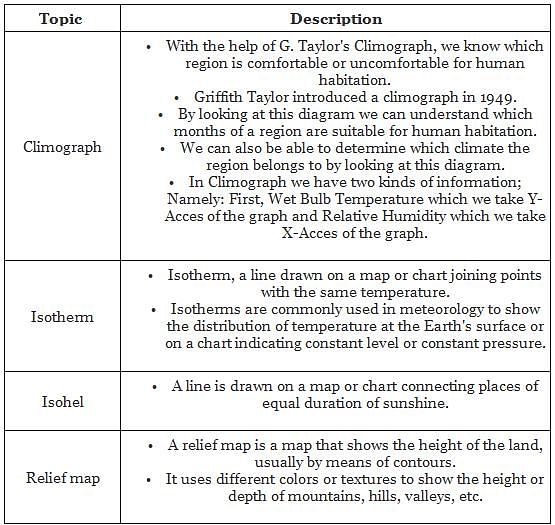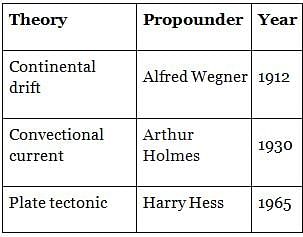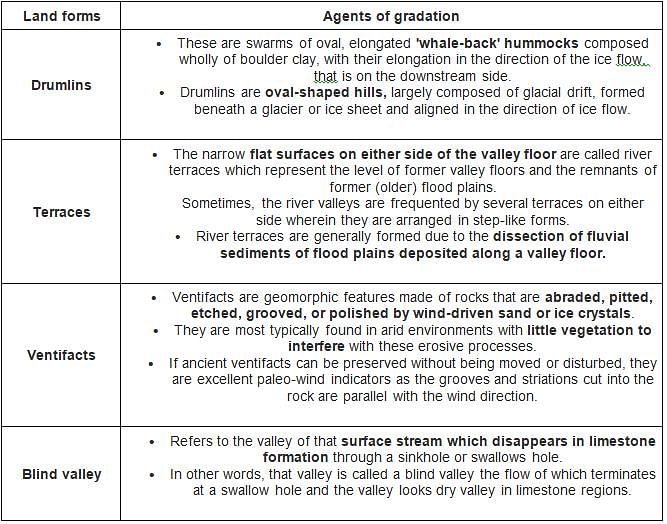KTET Paper 2: Social Science Test - 1 - KTET MCQ
30 Questions MCQ Test - KTET Paper 2: Social Science Test - 1
By applying the policy of 'Doctrine of Lapse', the British annexed the kingdoms of:
(A) Satara
(B) Mysore
(C) Udaipur
(D) Jhansi
Choose the correct option.
(A) Satara
(B) Mysore
(C) Udaipur
(D) Jhansi
Choose the correct option.
Certain groups feels marginalised due to factors, like:
| 1 Crore+ students have signed up on EduRev. Have you? Download the App |
Which one among the following is not a feature of 'Lithosphere'?
Which one of the following methods is most suitable for developing an understanding of social problems?
Sometimes we use AD before dates. What does AD stands for?
Match the following in the context of social reformers during the modern period and choose the appropriate option.
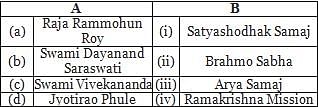
Consider the following statement(s) in reference to Article 22 of the Constitution and criminal law and choose the correct/appropriate statement(s).
- The Right to be informed at the time of arrest of the offence for which the person is being arrested.
- The Right to be presented before a magistrate within 24 hours of arrest.
- Confessions made in police custody can be used as evidence against the accused.
- A boy under 15 years of age and women cannot be called to the police station only for questioning.
If  = 7, 'x' and 'y' being positive whole numbers, then the values of 'x' and 'y' are
= 7, 'x' and 'y' being positive whole numbers, then the values of 'x' and 'y' are
We are not crushed under the weight of atmosphere because the pressure inside our body is
If one angle of a triangle is 130°, then the angle between the bisectors of the other two angles is
Which one of the following is true about classical dances?
Choose the most inappropriate statement regarding teaching of Social Science in middle school.
Which among the following conditions is correct with respect to the "Lapse Rate"?
A Social Science teacher has developed an objective type test but she has a doubt about the reliability of the test. What should be done to ensure the reliability of this test?
Which of the following are forms of precipitation ?
(A) Flood
(B) Snow
(C) Hail
(D) Sleet
Khan Abdul Ghaffar Khan started a powerful non-violent movement in North-West Frontier Province, known as
Choose the correct answer from the following:
1. Climograph - Wet bulb temperature and relative humidity
2. Isotherm - Equal temperature
3. Isohel - Wind direction
4. Relief map - Crop production
Which of the following social science questions provides opportunity to develop students' critical thinking?
A. Explain your views on installing solar power panels on a building.
B. Do you think that electric vehicles can help in reducing air pollution? Discuss.
C. How did the conflict between Russia and Ukraine start?
Choose the correct option.
A pattern or plan which can be used to shape a curriculum or course to select instructional materials and to guide a teacher's action is termed as
Identify the correct chronological sequence of the following theories:
There are many harbours and ports in Atlantic Ocean because
Match List I with List II:

Choose the correct answer from the options given below:
The teaching of geography in social science classroom should develop perspectives related to issues concerning
A. Global warming
B. Global economy
C. Disaster management
D. Human development
Which of the following is not a fundamental right?
During Social Science class, students begin to discuss whether a mobile tower should be allowed to install in the proximity of their school or not. A student says that the radiations from the tower would make students sick. Another student says, "I heard this on the news that mobile towers do not make people sick."
As a teacher, you would
Choose the correct pair from the following.
- Sedimentary rock → Trap plant and animal residues
- Igneous rocks → Formed by solidified lava
- Metamorphic Rock → Contains a large no of fossils fossil
- Minerals → Major constituents of rocks
Identify the answer from the codes given below.
When a number of industries are located close to each other and share the benefits of their closeness, it is referred to as


